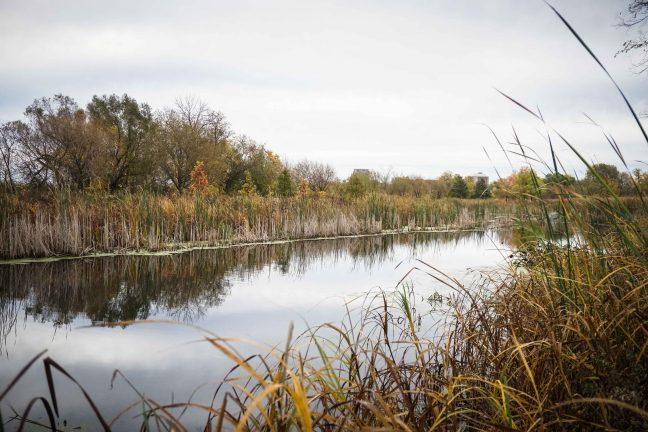Last month, the Wisconsin Senate Assembly Committee on Regulatory Licensing Reform approved Bill 547, indirectly enabling the destruction of nearly 100,000 acres of Wisconsin wetlands.
The bill will cut back on building restrictions and mitigation requirements for developing on wetlands. Before this bill, builders would have to buy or apply mitigation credits to replace every acre destroyed with 1 1/5 acres of newly-created wetland habitat in a different location. If this was not done, the builders would have to pay the Department of Natural Resources directly for wildlife and natural land restoration.
The revised bill removes the ability for local authorities to protect its wetlands via zoning regulations. It allows for 1 1/2 acres of urban-wetland to be freely filled, and three acres of non-urban wetland to be filled. This means companies will be able to build without being required to restore the habitat they destroy or pay fines for their destruction.
In the eyes of Wisconsin Republicans, the bill will allow for business and community growth inhibited by wetland protections. While supporting small and local businesses is definitely a step in the right direction, the passage of this bill would not tangibly contribute to that goal and would be detrimental to limited wetland habitat.
https://badgerherald.com/news/2018/01/30/bipartisan-bill-proposes-free-tuition-for-foster-children/
Looking at the issue of wetland loss from a scientific standpoint is necessary. This is something the Wisconsin Senate has the ability to do, but they lack the will to educate themselves.
The wetlands at risk are under state control. Many of them are “isolated wetlands,” which means they do not have a direct connection to a body of water. Some of these wetlands can come and go annually, but they are always most prominent in the spring and summer months.
Isolated wetlands such as vernal pools are home to various local amphibians like frogs and toads. These habitats are critical for breeding and the gestation period of these creatures’ lives.
Additionally, the threatened wetlands provide green infrastructure for urban areas. The spongy surface helps with flooding and water filtration. Eliminating these wetlands would result in an increase in local flood-related costs, decrease the natural filtration of rainwater and snowmelt.
Wisconsinites will not only lose beautiful land but will lose functioning ecosystems as a result of Bill 547. Moreover, this will happen during what scientists deem the Anthropocene, the sixth mass extinction in history. This geologic epoch entails the effects of humans on the climate, habitat and ecological diversity on Earth.
Whether or not the anthropogenic impact is intentional, the effects of what humans have already done to the Earth are yet to come. For example, even if humans somehow managed to completely eliminate the production of greenhouse gases, the current concentration of these compounds will continue to raise the global temperature for years to come. Preparing for an apocalypse may seem a bit extreme, but preparing for a stable ecosystem habitat while the earth continuously changes climate does not.
https://badgerherald.com/opinion/2017/10/17/its-the-civic-duty-of-all-citizens-to-learn-about-their-local-officials/
This bill is an echo of the decline in environmental protection. On a national level, the Trump administration has made big rollbacks on Obama-era regulations. On a state level, environmental regulation rollbacks have been happening since the 2000s. Wisconsin has fallen into a trap of sprawl, destruction and poverty. Bill 547 will only further this.
The passage of the bill would promote sprawl and consequently combat its own positive outcomes of economic growth. Urban sprawl is a plague, which creates mass amounts of impermeable land and has negative effects on social capital and tax rates. Wisconsin does not need an increase in monocultural, car-dependent communities. It needs strong local businesses and flourishing wildlife.
https://badgerherald.com/opinion/2018/02/14/bucky-promise-takes-first-step-in-rejecting-exploitative-inaccessible-education-system/
Wisconsin Republicans must look back on the landscapes that have created beautiful and famous naturalist writings, such as Aldo Leopold’s Sand County Almanac. In fact, they should read the book for some background knowledge on their decision making, as it addresses wetland conservation, ecology, society and how they interact. This bill is a shallow excuse to value money over conservation — more shallow than the vernal pools they are willing to destroy.
Emiliana Almanza Lopez (almanzalopez@wisc.edu) is a sophomore majoring in sociology and environmental science.


